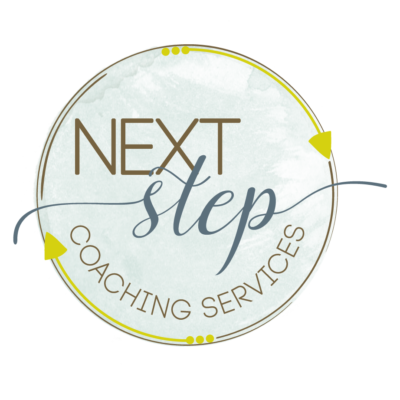Tips for a New Genre of Writing
If you love to write, there are lots of outlets for your writing that you should consider. Free-lancing for magazines, like my niece, Megan Dohm. is an exciting way to see your words in print (or on a screen).
Megan’s been dedicated to her writing and photo-journalism for years now. She’s a gifted, young writer who has gained some wonderful insights to share with you today.
Also, I want to brag on her a bit! (Proud aunt’s need to do that, you know?) In addition to honing her talents for others, Megan is launching an independent project in September called Long Way Around. Subscribe today to get your creative juices flowing about what’s possible with your own writing.
Please welcome Megan!
You’re becoming a writer — wonderful! We will always need more wordsmiths, people who help us see the world and ourselves in a new light. Now, here’s something to consider: Maybe being a writer doesn’t mean writing books.
Often publishing a book looks and feels like the pinnacle of writing; to have an actual book in your hands and on your bookshelf with your name on it is a worthy dream. But as a writer, it doesn’t have to be the only dream. If you are at the beginning of your writing career and you want to strengthen your writing muscles, it’s worth considering freelance writing.
Freelancing can be an end in and of itself, but it’s also a tool to help you develop as a writer; it’s an opportunity to be pushed by an editor, rise to meet regular deadlines, explore different subjects, voices, and methods, and find what fits you best. That might be longform articles, it might be copywriting, it might be poetry. Experience with a wide variety of readers helps give your words humility and depth, whatever you decide to do with them in the future.
I’ve only been doing this for three years, but that’s long enough to know that the work of writing is not all art — some of it’s business, a piece is discipline, and parts of it are mental and spiritual. If I could have coffee with myself back at the very beginning, back when every pitch was nerve-wracking and I wore blazers to meetings to feel more official, here is the advice l would myself:
- Reading is part of your job. Make it a discipline, love it, read widely and often. Also, read more on your whims! It doesn’t all have to take a serious literary direction. If you’d like to read about the bear woman of Dare County, or you feel a pull towards an essay about Emily Dickinson’s dress, or the history and cultural meaning of rose gold, go for it! It seems nothing is wasted.
Note: At the beginning, I had it on my list for pretty much every weekday to take a set amount of time to read. I’d set a timer, put my phone in airplane mode, and dig in. Note how I didn’t say how much time — that’s because everyone’s schedule is different!
- There are times when it’s going to feel like work — difficult, backbreaking, heartbreaking work. And that’s okay! The ideal picture of writing is as an activity you do in a quiet house, light streaming in the window as beautiful words flow out of your brain and onto the page. This…is not how it usually happens. Like anything else, there are not-fun parts of the job (taxes, pitching, writer’s block).
Difficulty is not necessarily a sign that something is wrong, only that you live in a world where sometimes your work comes with thistles and thorns (and possibly young office-mates who seem determined to interrupt your flow with Disney tunes sung at the top of their lungs).
- As a freelancer, you wear a lot of hats, including boss. Go to bat for yourself like you’d want your boss to do for you. Let me put it another way: If you had a boss who was consistently pushing your limits, waffling about paying you for your time, and ignoring that you had a life outside of your job in order to accomplish aggressive deadlines, would you want to stick with that job — or boss — long term?
PS: Read your contracts. If something feels off, pipe up! If something feels predatory, run!
- If you’re conducting interviews, never (never ever ever ever ever ever ever ever EVER) leave your recording device out of reach. Not for a bathroom break, not if your interviewee wants to give a tour of your garden, not if you’re certain the sky is falling. This was one of those newbie mistakes with nearly tragic consequences.
- Write it down. This falls into the category of almost stereotypical advice that you’ll ignore at first, because you think your memory is better than the hundreds of people giving that advice. Ha! If you think up a good topic, or a phrase for a piece comes into your mind when you are running errands, text it to yourself or put it into your notes app.
For references: You’re going to think a couple of scribbled notes will trigger your brain, and you’ll be able to remember where you got that scrap of information. Look, I love the optimism, but you won’t remember. Life is long, and you’re taking in a lot of information. Do your future self a favor, and take careful notes!
- Your work is not as brilliant as you very secretly hope it might be, but it’s also not as terrible as you fear it may be. Put away yourself, your ambitions and dreams and worries, and just tell the truth in the best way you know how.
- Stop pitching like unknown editors are horrible gate-keeping trolls, sneering down at you from their stack of unanswered emails. Instead, start picturing them leaning over their desk with hope in their eyes, asking for the best story you’ve got. Switching from pitching apologetically to offering a collaboration that’s mutually beneficial is gonna change your pitching life.
Relatedly: When you have a story or article that you really believe in, wait for the right people to tell it with. It’s well worth the wait.
- Diving headlong into a new endeavor is terrifying. You know what doesn’t help you accomplish anything? Focusing on the overwhelm, and the thousand small tasks before you. Head down, do the next little piece of work. Look far enough ahead to stay on track, but not so far you falter. It’s really true that the best way to eat an elephant is one bite at a time.* One task often lays groundwork for the next.
*No elephants were harmed in the making of this post.
- Wise words from Maya Angelou: “When people show you who they are, believe them.” At the beginning, it’s easy to let warning signs slip by because you’re so excited to be published. If someone is not respecting your time and work — by their words or by their actions — consider that a red flag. If it’s consistent, you either need to charge more or find other places to work (there are nice ways to do this! you don’t necessarily have to burn a bridge).
Start out thinking the best of everyone, and be glad to show them grace and kindness. But when people show you who they are, believe them, and chart out your future interactions accordingly.
- The harvest is not up to you. When you get particularly restless, it’s good to go to Ecclesiastes 11:4-6
“He who observes the wind will not sow, and he who regards the clouds will not reap. As you do not know what is the way of the wind…so you do not know the works of God who makes everything. In the morning sow your seed, and in the evening do not withhold your hand; for you do not know which will prosper, either this or that, or whether both alike will be good.”
It’s so easy to spend your time craning your neck to look for clouds, spending precious energy trying to will the wind to bring rainclouds your way. Instead, you simply do your part. Work hard and well, plant your seeds, and let God be God. Fretting is not going to make acceptance emails come any faster.
Bonus lessons: When you mean serious business, put the phone on airplane mode. // Learn about the concept of creative resistance, and fight it. // You’re going to get the urge to line up multiple deadlines on one day. DON’T DO THAT. Stagger deadlines, for the sake of your sanity and relationships. // There’s newness with each editor/publication, and that’s normal. // Investing in education yields great returns. // It’s a marathon, not a sprint. It takes years to build up connections within the publishing world, not to mention honing your craft. //
Some starter writing resources:
- Article: How to Successfully Pitch the New York Times or Anyone Else by Tim Herrerra, Smart Living editor at the NYT.
- The Synonym Finder (even better than the dictionary for finding the right word)
- Big Magic by Elizabeth Gilbert (for helping you navigate the sticky creative process)
- Writer’s Market Guide (for a basic look at the practical stuff of freelancing)



Love these tips and your humor. Need to try the synonym finder. And yes, reading is part of the job description. I get so many ideas from reading. So is stepping out into my backyard, where so many ideas come to me.
Megan,
What gems in this post! Thank you for sharing! I love that you said be a reader! My advice for writers too!
I especially love this nugget: “Switching from pitching apologetically to offering a collaboration that’s mutually beneficial is gonna change your pitching life.” Pitching anything can be so fraught with anxiety. Thank you for sharing!
Thanks, Melanie! Pitching is still something I struggle with, but that has been the biggest breakthrough for me personally!